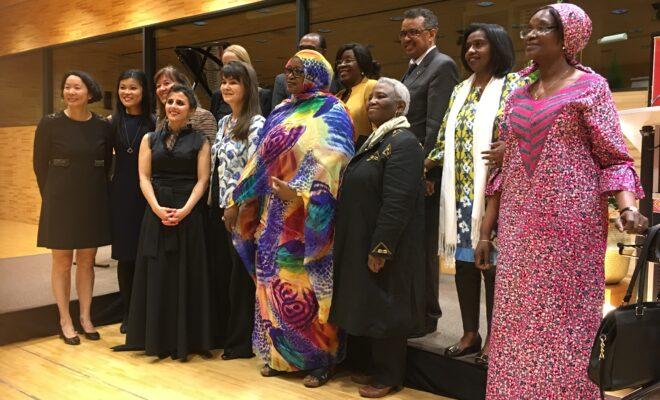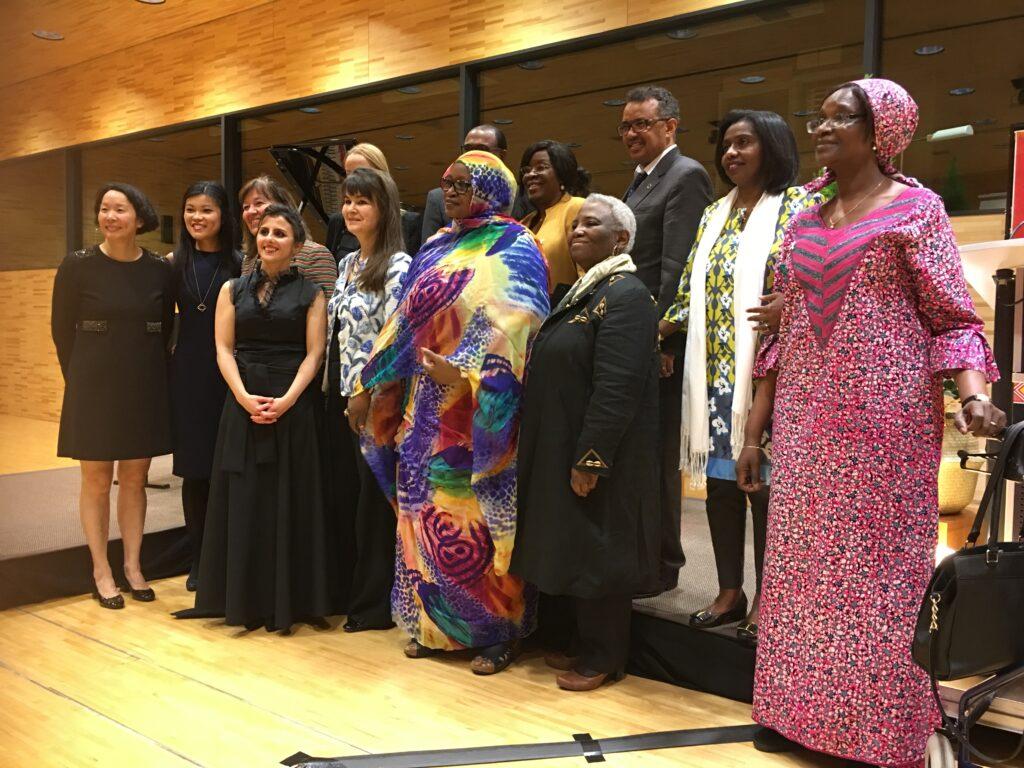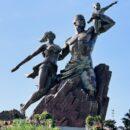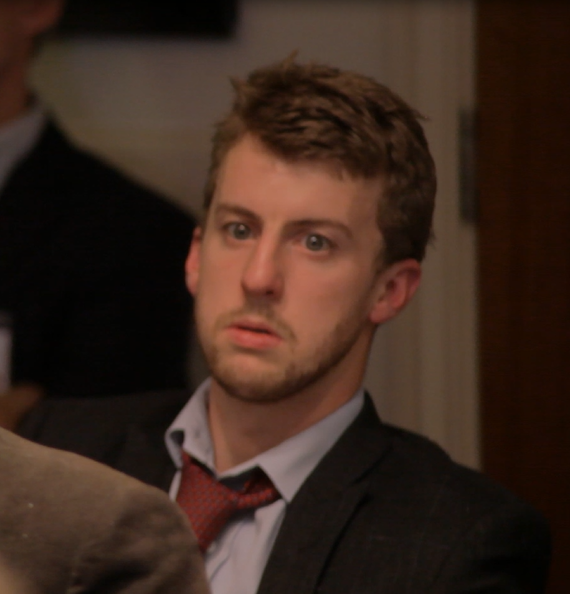
Debating Ideas is a new section that aims to reflect the values and editorial ethos of the African Arguments book series, publishing engaged, often radical, scholarship, original and activist writing from within the African continent and beyond. It will offer debates and engagements, contexts and controversies, and reviews and responses flowing from the African Arguments books.

African Women Ambassadors to the UN in Geneva with the Director General Dr Tedros
A Covid-19 vaccine is not yet licensed. However, all indications from experts suggest that the licensing of one of the three leading Covid-19 vaccine candidates is imminent. It is expected that by the end of 2020, or at the latest by early 2021, an approved licensed vaccine will be available for mass production and mass vaccination. Delivering the first vaccine marketed for the population will face many challenges that policymakers and leaders in industry and international organizations should plan for in order to mitigate the risks and deploy the vaccine optimally and effectively. My briefing on global health discussed the issue of public trust and confidence in a newly licensed Covid-19 vaccine. This article addresses some of the potential hurdles that African countries might face in their future efforts to deliver vaccines to the continent. A public discussion on what plans and contingencies, governments, public health experts, policymakers and partners are putting in place to deliver vaccine across the region is needed. Policymakers should err on the side of caution by overpreparing and over-planning to minimize potential disruptions.
Plan for the same supply challenges seen early during the pandemic
The challenges that African nations are likely to face when delivering Covid-19 vaccine are likely to mirror those already experienced by countries globally since the beginning of the pandemic. In particular, many low- and middle-income countries (LMICs) including those in Africa experienced huge challenges in their ability to buy any PPE and IPC products at all. Other countries could not get the supplies they bought because the world was not producing enough products compared to what was needed. The available global demand for infection prevention and control products like test kits, masks, medicines and ventilators far exceeded available supply.
Some countries blocked their borders to prevent essential products needed for the national response effort from leaving their borders. The Swiss Global Trade Alert project estimated that more than 90 countries put up restrictions on the export of protective equipment and medical products. There were diplomatic tensions when some countries would not allow products destined to other countries to transit through their territory. When the Covid-19 vaccine becomes available, countries should plan for similar hurdles in their efforts to distribute Covid-19 vaccine. The best way to deploy the vaccine is to ensure that the worst affected places are prioritized. This would best serve global public health. However, the most likely scenario is that rich countries will get the vaccine first regardless of international public health requirements. Production will not be enough so vaccine delivery to people outside wealthy countries will take time.
The global challenge of manufacturing and distributing enough vaccine
On a more optimistic note, in order to have enough vaccine to protect all Covid-19 susceptible populations around the world, it would help to know how much vaccine will be needed and to best deploy available production infrastructure towards this target. The absolute vaccine quantity needed to stop the pandemic will depend on whether individuals will need to be immunized with one, two or three shots of the vaccine. If each person is in need of more than one injection to achieve adequate immune protection, more vaccine will need to be produced. The amount of time needed to get the vaccine to the largest number of people, including the most vulnerable outside rich countries, will be even greater. The leading vaccine candidate, the Oxford-AstraZeneca vaccine, is currently given in two doses, according to Professor Sarah Gilbert, the lead scientist on this vaccine.
Africa will face greater supply chain challenges
Manufacturing and distributing enough vaccine to meet global demand is a challenge facing the global community. Global production capacity will not be enough to meet this unprecedented demand. Existing scientific data from testing for Covid-19 antibodies in individuals exposed to the virus suggests that an estimated 90% of people (7.2 billion people globally) are susceptible to Covid-19. Data models project that achieving protective immunity within communities would require that an estimated 70% of people are exposed to the virus through vaccination or natural infection. This translates to about 5.6 billion people globally and 910 million in Africa, who will need to be vaccinated or naturally exposed to SARS-Cov-2. Unless enough people have immune protection within any population to interrupt the chain of transmission, viral transmission will not stop. The harsh reality is that without enough vaccines, some people will have to go without.
Concerns whether Africa and other LMICs can get any vaccines at all are very real. Africa is currently pursuing a dual strategy of relying on the Covax facility, the global vaccine allocation plan which accelerates the development and manufacture of Covid-19 vaccines to guarantee fair and equitable access for every country in the world. At the same time, it is also pursuing bilateral negotiations with China, Canada and others to secure additional vaccine stock. Africa CDC has indicated plans to immunize 60% of the population, an effort that will require up to USD 35 billion to secure 3 billion doses needed. Covax aims to buy 2 billion doses of approved vaccine by end of 2021 from which 20% (230 million doses) will be reserved for Africa’s front-line workers and vulnerable groups. This is a tiny amount compared to what Africa will need. The Act-Accelerator, a global collaboration to accelerate the development, production, and access to tests, treatments and vaccines is however short of funds. It is currently in need of US$35 billion to be able to deliver on its promise to produce 2 billion vaccine doses, 245 million treatments and 500 million tests. Of the $15 billion it needs immediately, $3 billion is available. Even though funding the Act-Accelerator fully would shorten the pandemic and allow faster economic recovery, it faces steep challenges raising these funds amidst the pandemic when all countries are looking inwards.
In the past, manufacturers and wealthy countries have made promises to make vaccine donations for pandemic vaccine like the 2009-H1N1 pandemic. These promises were however not tied to any specific delivery timelines. They were likely to be met much too late to be of much benefit to recipient countries. In fact, at the time, the US promised to donate 10% of its H1N1 vaccine purchases to the WHO, but the US Secretary of Health and Human Services Kathleen Sebelius subsequently rescinded this. The US would only donate the promised quantity after all at-risk Americans had been vaccinated. The US was facing a production problem that had created shortages and any donations were postponed until national needs were met. Canada resisted joining other wealthy countries in promising to donate vaccines because it was also experiencing shortages at the time. Fearing that other governments were likely to prevent vaccine exports to Canada because of their own national vaccine shortages, Canada opted to award the vaccine contract to a domestic company. The Australian government similarly instructed its domestic manufacturers that they had an obligation to meet the government’s domestic needs before any vaccine could be exported to the US.
As the 2009-H1N1 pandemic progressed, wealthy nations eventually decided to donate vaccine. However, this was only after realizing that they had overpurchased vaccine having anticipated that they would need two doses to vaccinate adults. It then turned out that adults could be adequately protected with a single shot. So they suddenly found themselves saddled with excess vaccine stock that they needed to rid themselves of. Furthermore, scientific data at the time also showed that the 2009-H1N1 pandemic virus had turned out to be milder than previously thought and a lesser global public health threat. The concerns of donors during 2009-H1N1 pandemic are very similar to the Covid-19 pandemic. The lesson of history here is that for African countries donations are not a reliable source of vaccine and more viable pathways to vaccine are needed including establishing production on the continent.
Political rhetoric of priority access to Covid-19 vaccine
According to the WHO and good public health principles, vaccines and other medicines must be available to countries where they are most needed. Access priority should always be given to the worst affected populations. This is the best way to prevent global spread. At a national level, this means prioritizing the front-line health workers in healthcare settings, elderly people over 50 years, people with pre-existing conditions that increase their vulnerability to Covid-19 like those with diabetes, high blood pressure and other health conditions. At a global level, it means providing vaccines to those with the greatest public health need – large affected populations with weak infrastructure that could render a serious outbreak difficult to control. However, it rarely works in this way, because the wealthy nations are able to muscle in and price out poorer nations. During the 2009-H1N1 pandemic wealthier nations used advance purchase contracts to buy practically all of the available stock of vaccine produced at the time by manufacturers. Poorer countries with cases of 2009-H1N1 who had shared virus samples with the global surveillance network which led to the development of a vaccine had no opportunity to buy any vaccine with their own money. Pharmaceutical companies prioritized the highest bidders like the US, France and the UK who are willing to pay significantly more to secure vaccines, as has already been seen with Covid-19 vaccines.
The nations of Africa like other LMICs have little geopolitical leverage to influence wealthier countries to spare some vaccine for them. They will get plenty of empty words about the importance of equity, social justice, and global solidarity, which is of little value and substance when vaccine is not available to protect Africa’s vulnerable populations. African nations will need to stand together resolutely and go on a major offensive on all fronts to have any hope at all of securing any vaccine. Improving Africa’s odds of getting the vaccine in a timely manner and avoiding further lockdowns in the anticipated second and third pandemic waves will require a well thought out strategy and contingencies for navigating the current geopolitical environment to successfully secure vaccine for the region.






